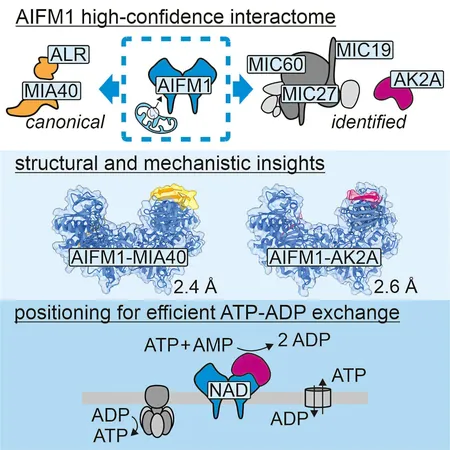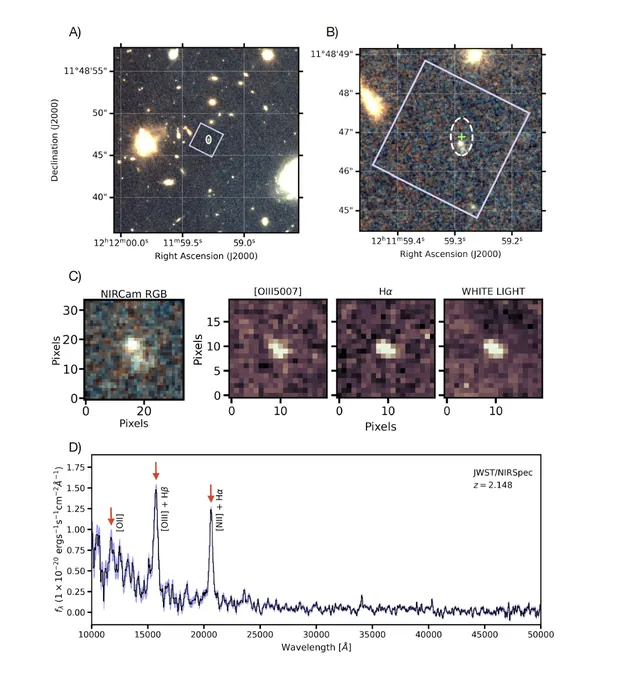
Unveiling AIFM1: The Surprising Hero behind Mitochondrial Energy Production!
2025-06-27
Author: Jia
Groundbreaking Research Sheds Light on Mitochondrial Mystery
A groundbreaking study from the University of Cologne has unveiled the pivotal role of a mitochondrial protein, AIFM1 (Apoptosis-Inducing Factor Mitochondria-Associated 1), in orchestrating cellular energy production. This revelation positions AIFM1 as a crucial coordinator in the intricate dance of energy metabolism.
Powering Up Mitochondria: The Energy Factories of Our Cells
Conducted by renowned teams led by Professor Dr. Jan Riemer and Dr. Simon Pöpsel, this research is featured in the prestigious journal Molecular Cell. The researchers used a blend of advanced methodologies, including cell biology and high-resolution cryo-electron microscopy, to study AIFM1, a protein essential for the function of mitochondria—the powerhouses responsible for generating adenosine triphosphate (ATP), the energy currency of life.
The Implications of Mitochondrial Dysfunction
Mitochondrial dysfunction can trigger a host of disorders, including neurodegenerative diseases, muscular issues, and metabolic syndromes. Understanding AIFM1's role in these processes could unlock new avenues for treatments and therapies.
Mapping AIFM1's Network: A New Perspective on Cellular Energy
While AIFM1 has previously been linked to programmed cell death and respiratory chain assembly, this study broadens its significance by unveiling a network of interactions. The researchers found that AIFM1 interacts prominently with adenylate kinase 2 (AK2) and components of the MICOS complex, essential players in maintaining mitochondrial shape and energy balance.
Visualizing Molecular Interactions: The Cutting-Edge Technology at Work
Utilizing state-of-the-art cryo-EM, the researchers produced stunning atomic models of AIFM1 complexes. These high-resolution images reveal how AIFM1 stabilizes AK2A by binding to its C-terminal tail, positioning it near ATP-transporting proteins and the ATP-generating ATP-synthase. This strategic arrangement boosts the efficiency of mitochondrial energy production.
Key Discoveries that Could Transform our Understanding of Energy Metabolism
Dr. Pöpsel emphasized the significance of the interaction between AIFM1 and a specific variant of AK2A, crucial for balancing adenine nucleotides like ATP. Professor Riemer added that the study not only underscores AIFM1's support for AK2A but also its role as a key molecular hub, linking multiple regulators of mitochondrial energy metabolism.




 Brasil (PT)
Brasil (PT)
 Canada (EN)
Canada (EN)
 Chile (ES)
Chile (ES)
 Česko (CS)
Česko (CS)
 대한민국 (KO)
대한민국 (KO)
 España (ES)
España (ES)
 France (FR)
France (FR)
 Hong Kong (EN)
Hong Kong (EN)
 Italia (IT)
Italia (IT)
 日本 (JA)
日本 (JA)
 Magyarország (HU)
Magyarország (HU)
 Norge (NO)
Norge (NO)
 Polska (PL)
Polska (PL)
 Schweiz (DE)
Schweiz (DE)
 Singapore (EN)
Singapore (EN)
 Sverige (SV)
Sverige (SV)
 Suomi (FI)
Suomi (FI)
 Türkiye (TR)
Türkiye (TR)
 الإمارات العربية المتحدة (AR)
الإمارات العربية المتحدة (AR)